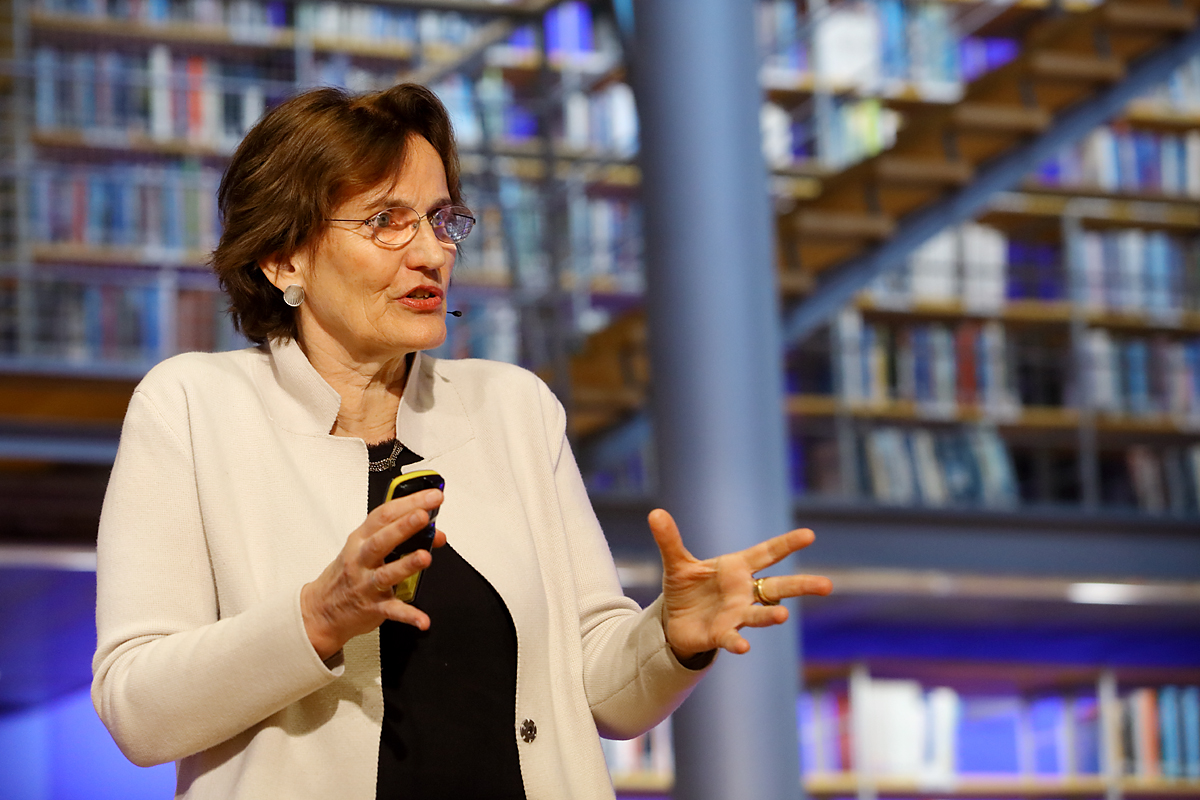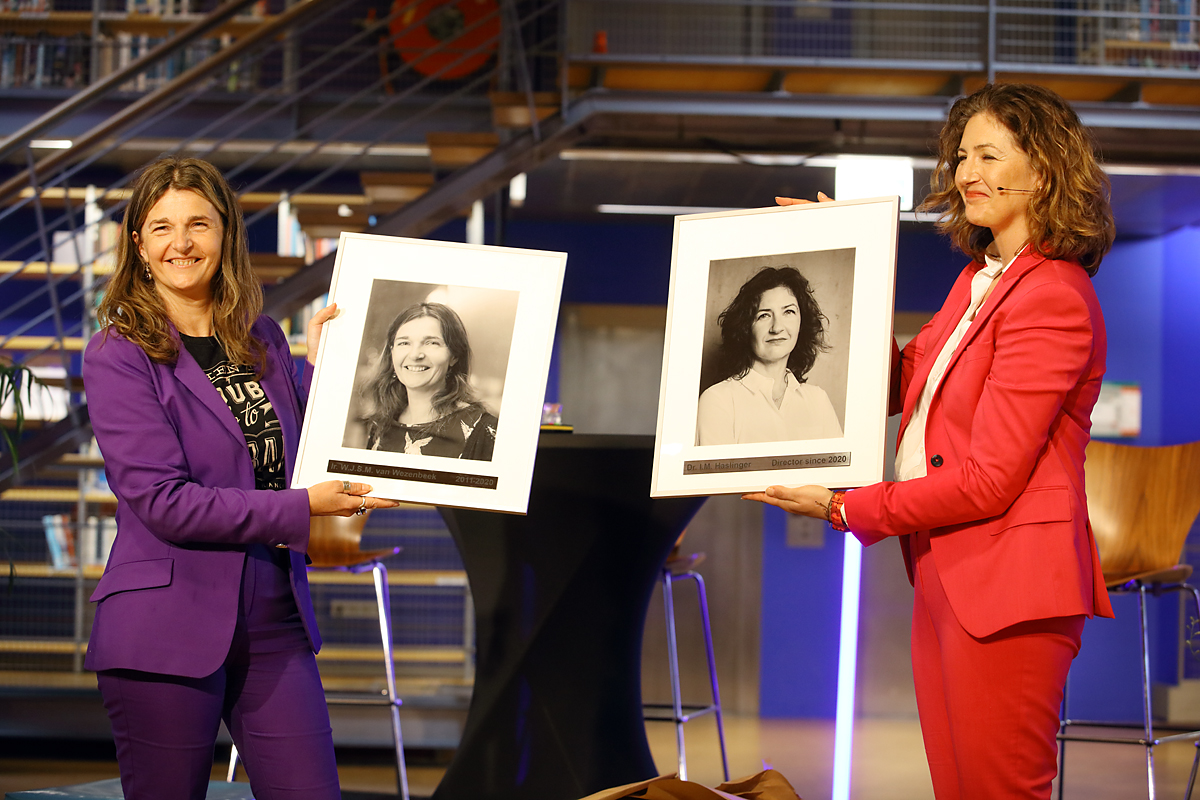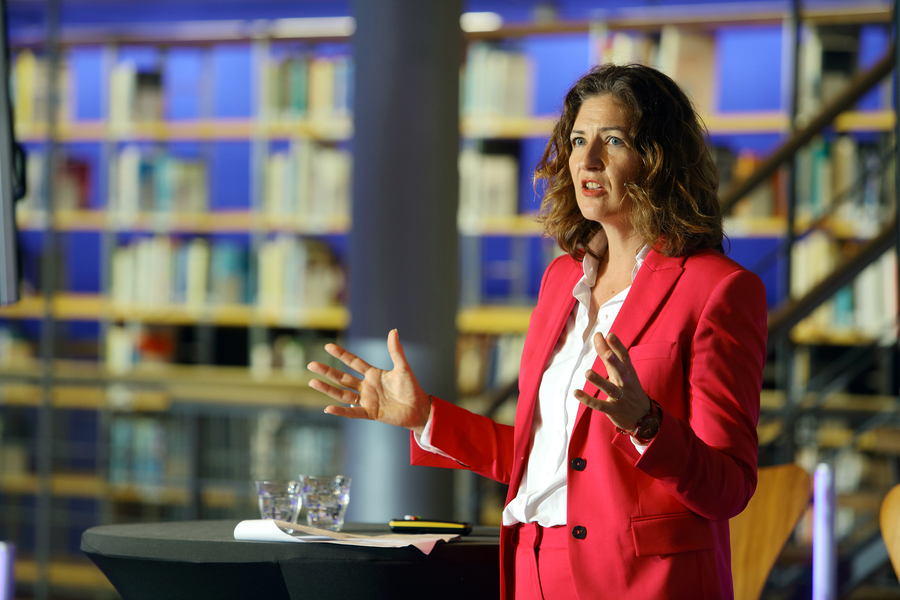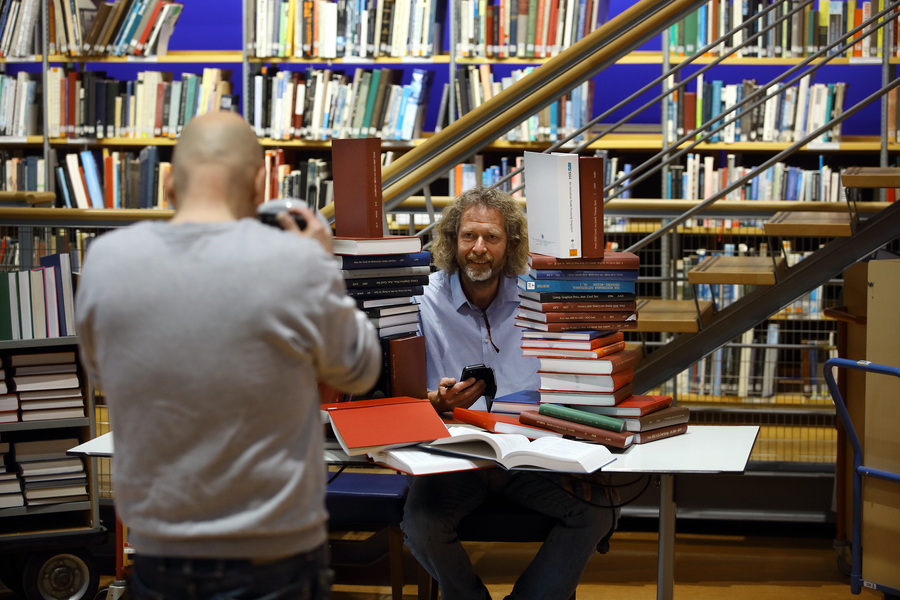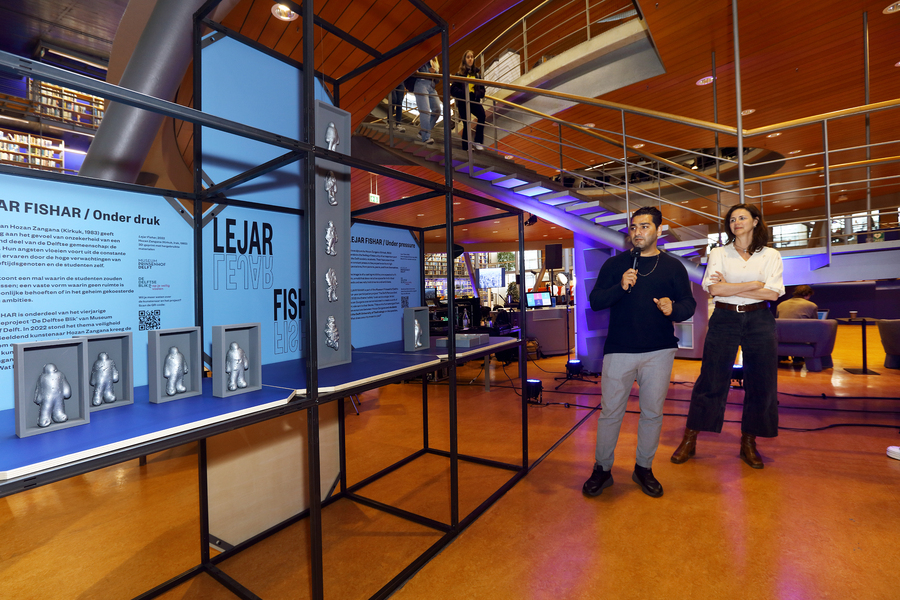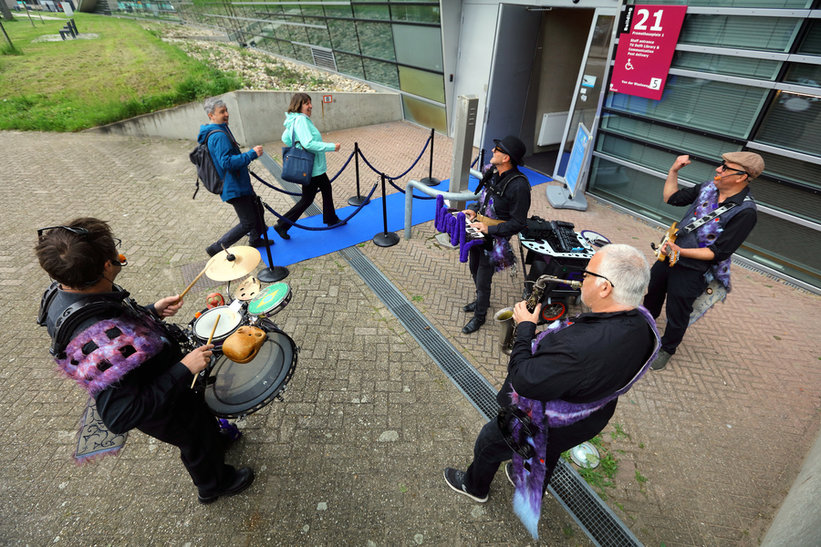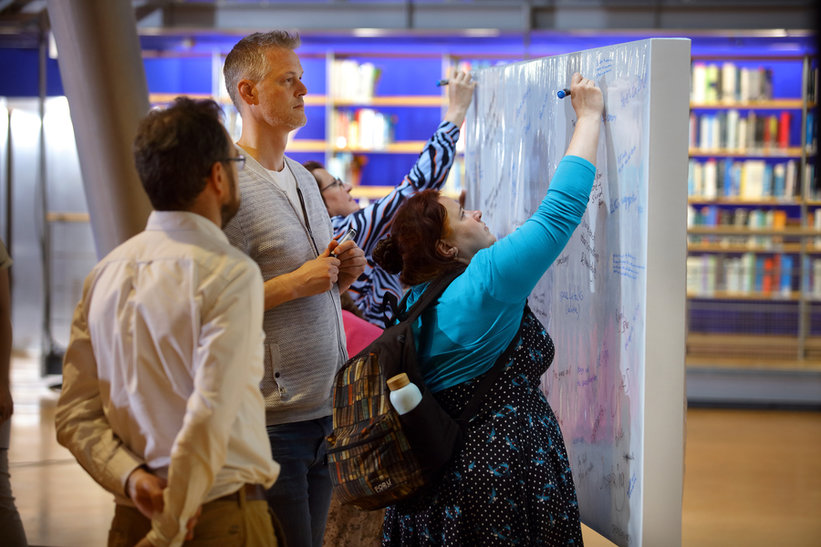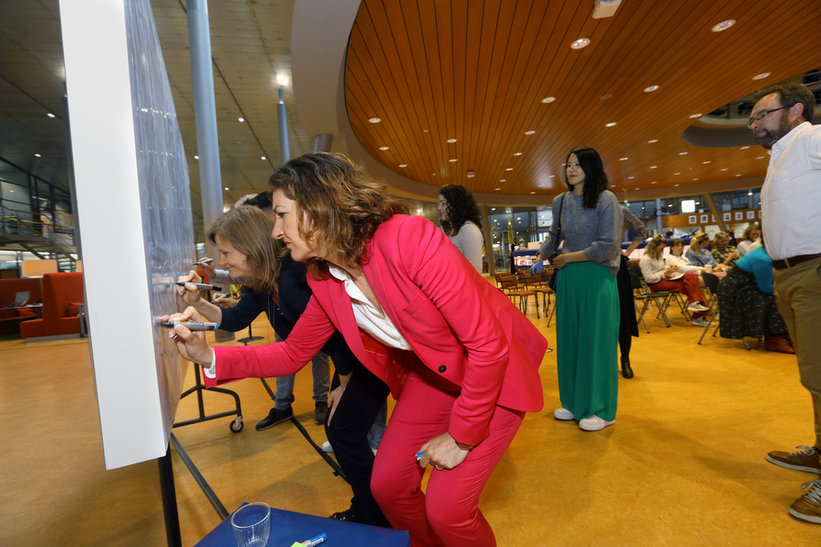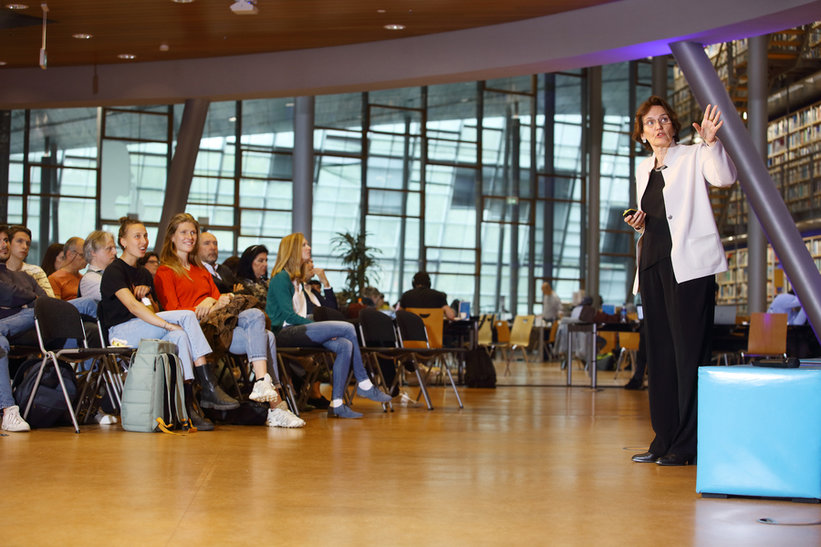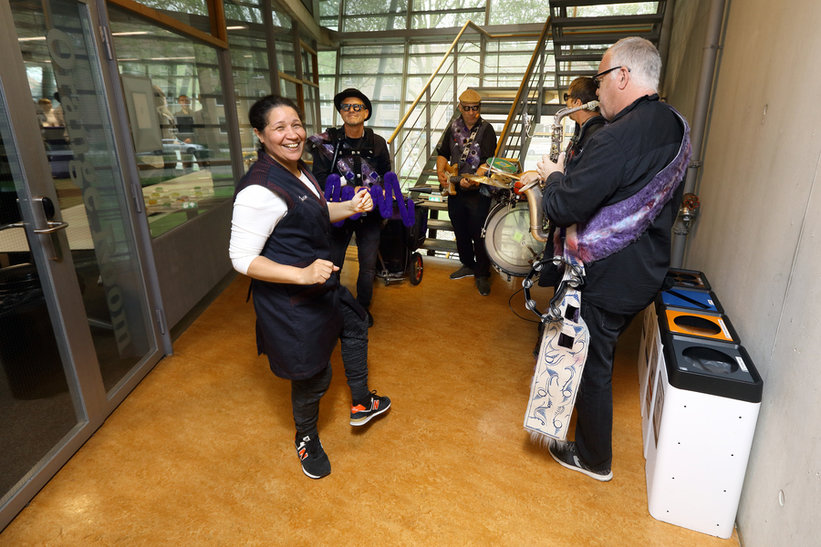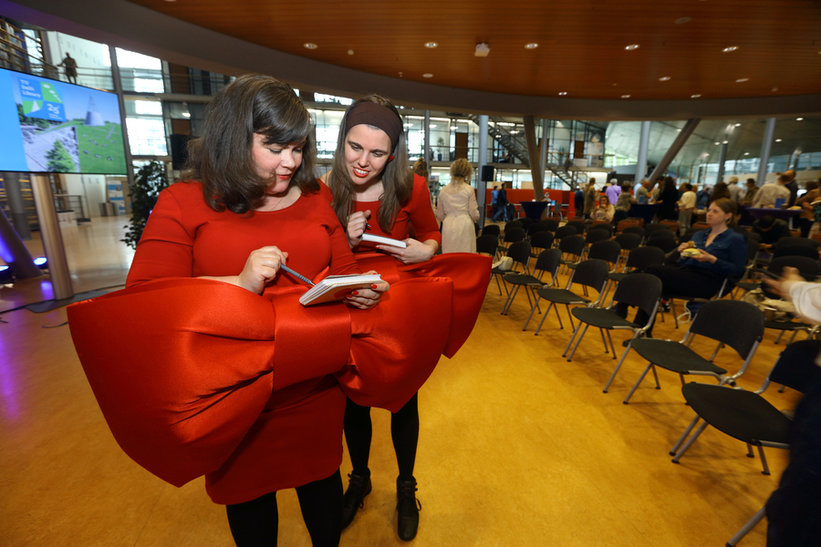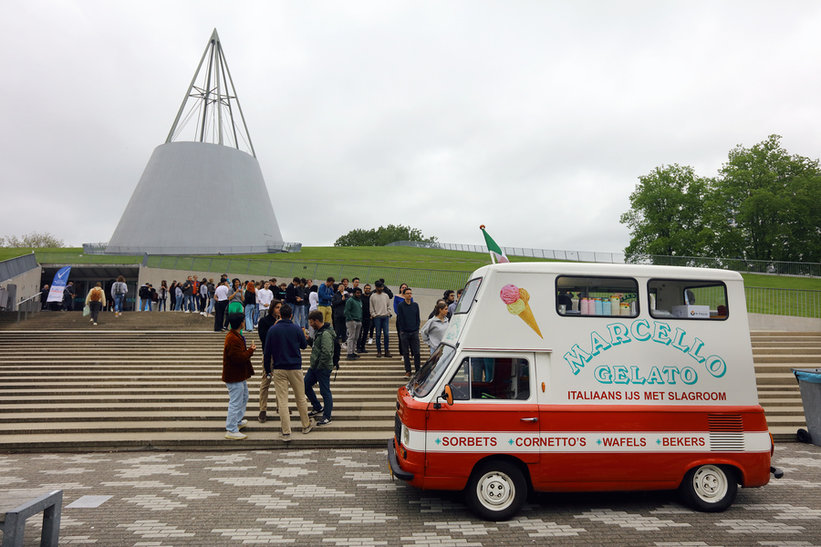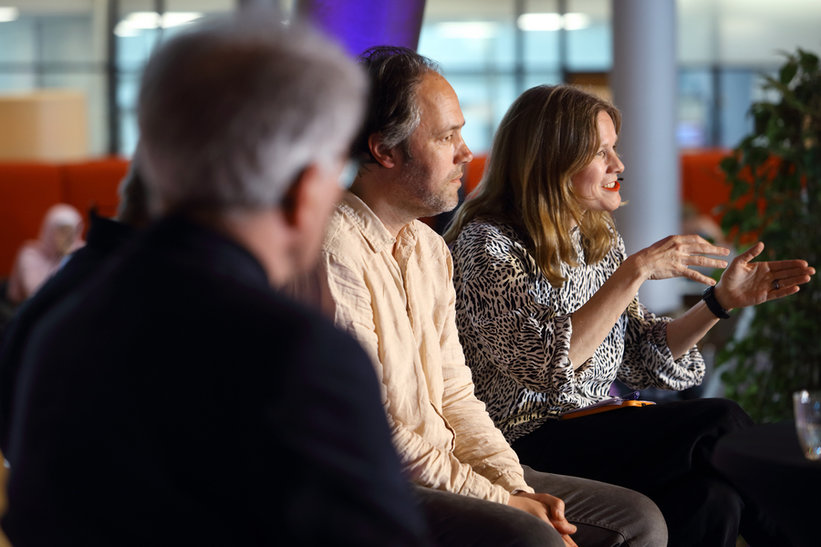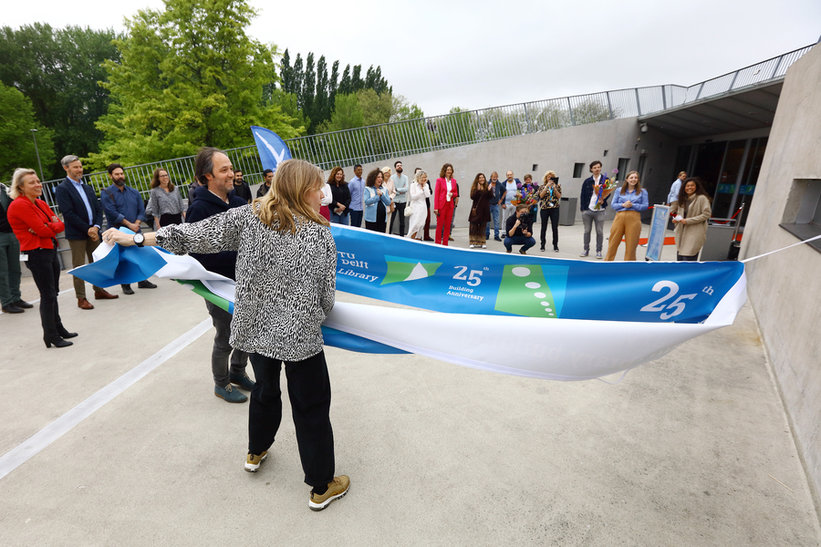Celebrating 25 years of the TU Delft Library building
The TU Delft Library building celebrated its 25th anniversary on 15 May 2023 with a day full of events to honour the iconic building itself and the integral role that it plays at the university. Speakers, discussions, and the opening of exhibitions were all part of a tribute to the history and a look towards the future of both the physical and intellectual space that the Library embodies.
The anniversary programme kicked off with an interactive lecture led by Studium Generale’s Leon Heuts called “Why We Love our Library”. Live music by FunkSweep entertained attendees, who were also invited throughout the day to experience the XR Cone, to leave a personal message via the DIY Video Guestbook and take part in a creative photo shoot with photographer Pieter Lemmens.
One of the highlights of the day was “The Future of Libraries” talk given by Francine Houben, Creative Director & Founding Partner of Mecanoo Architects, the designers of the TU Delft Library. She shared interesting insights about the process of creating the building, which was realised in 1998, noting that it really was a library of the future when it was built. “It was unique because it was totally sustainable at a time when sustainability was not a big thing yet,” said Houben. “Having such a green building at that time was ground-breaking.” And the iconic cone that sits atop the walkable roof is a symbol of technical engineering, fitting for what she called the ‘building of glass and grass’.
According to Houben, it was important that the Library be designed as a multi-functional facility with the ability to adapt to the changing needs of society. “The library of the future is a changing library,” she said. What was once a quiet place to study and access information has transformed into a digital hub, a place where people connect, learn, collaborate and develop themselves. She also noted that it should be a place to get a good, affordable cup of coffee. Houben said that this project was important for the Mecanoo team, all of whom were graduates of TU Delft at that time. It was their first big library, and they have since gone on to work on other notable library projects including the Martin Luther King Jr. Memorial Library in Washington, D.C. and the LocHal Public Library in Tilburg.
After Houben’s talk, attendees were invited to see the unveiling of two new portraits on the Library’s wall of directors. Former director Wilma van Wezenbeek and the Library’s current Director Irene Haslinger hung their framed portraits next to those of prior directors. Later in the day, “The Delft Perspective: Under Pressure” exhibition was officially opened, a collaboration with the Museum Prinsenhof Delft that will be on display at the TU Delft Library. And finally, the day’s events concluded with a panel discussion about reframing the Perception of Art in Education and the opening of the exhibition ‘When images remain’.
Since its inception, the TU Delft Library has been a beacon of innovation, serving as a gateway to information, research, and collaboration. As director since 2020, Haslinger said she sees the Library as an important facilitator for both education and research. It starts with providing students and researchers with the information they need and continues through the process of offering a wealth of mostly digital services, like research data management, digitising educational material and acting as an archive that goes far beyond journal articles. “It has become much more diverse and much more dynamic,” she said. “It used to be one format – text - and now it has become this broad range of research output that includes data, software, models, 3D printed objects, VR and AR. And not just storing it away but also keeping it alive in a mostly digital environment. What this means for the Library is that we are constantly changing, the default has become change.”
This shift towards the digital realm requires constant reinvention, according to Haslinger, but it doesn’t replace the need for a physical environment. “The physical is and will always be important, starting with the building. It’s this idea of a neutral, safe, physical place, and hopefully also in the digital domain, where it's free for people to feel comfortable and share their opinions and to ask each other questions. It’s about curiosity, not just in the data and the facts, but also curiosity about other people and finding connections.”
In the current world climate with fake news and science based on opinions, Haslinger noted that science faces some serious challenges. “There is a difference in the way people form their opinions, and the ancient authority of places like universities or the knowledge of researchers should be neutral and based on facts,” she said. “Libraries are also about democracy because knowledge is power, and public libraries are especially very important for that. People should be able to develop themselves to gain knowledge and form their own opinion in a critical, open, and safe way. I hope that despite all the things going on in this world, we as a library can also help our students to become responsible and reflective engineers.”


